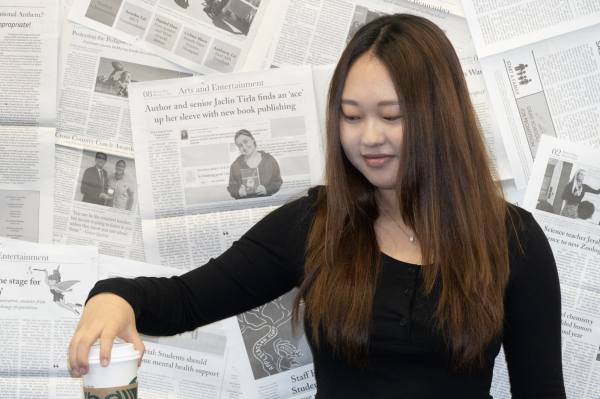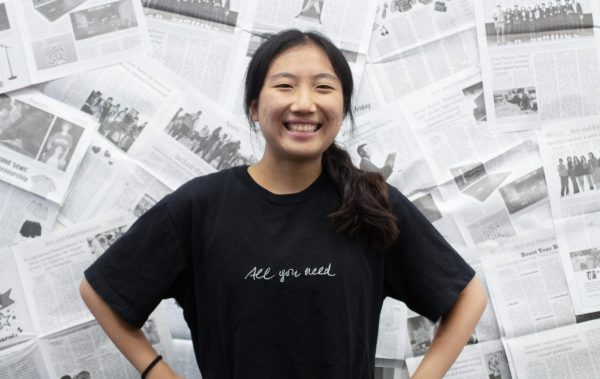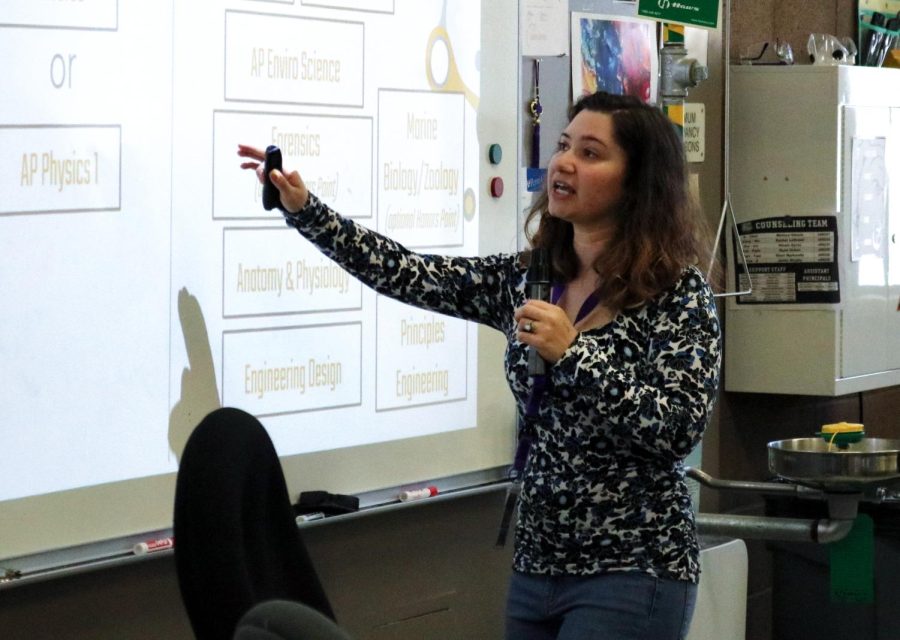Science Teacher Leanne Jimenez Applies Uruguayan Educational Methods in the Classroom
Science teacher Leanne Jimenez explains the next year’s different course options to eighth-period honors chemistry students on Friday. According to Jimenez, physics is a required course to take in junior year, whether it be a CP or AP level.
Teaching in rural towns with one-room schoolhouses and taking 45-minute bus rides to and from school sounds improbable. Imagine working with students ranging in age from 2 to 12 in one classroom.
When science teacher Leanne Jimenez received the Fulbright Scholarship in April 2018, she had the opportunity to explore a different country all-expenses-paid in exchange for fostering understanding between nations and sharing cultures.
Jimenez was encouraged to apply while interning at the U.S. Department of Education in the District of Columbia in 2015, where she came across a co-worker who had just finished their scholarship program. The application was a year-long process, according to Jimenez, who elaborated that building a resume, finding a recommender and writing many essays were difficult but worthwhile tasks as she arrived in Uruguay in March 2019.
“Even though it was more competitive than a lot of other countries, it was the perfect fit for me,” Jimenez said. “And it’s the same advice I give people when they’re applying to colleges. It’s not about selectivity. It’s about the match for you. So because I had good reasons for wanting to go to Uruguay, I felt like that was the right country for me no matter what.”
Jimenez chose Uruguay because she already spoke Spanish and wanted to study in a more developed country to emulate Uruguayan education. According to Jimenez, she noticed Uruguay has an advanced technology program; specifically, Uruguay was the first country in the world to provide all primary students with a laptop.
“Their country is just so willing and curious to learn about everyone,” Jimenez said. “Everywhere we went, people just want to hear. They’re like, ‘Let me hear about it. Let me learn. Let me ask you questions.’ And so if they saw that you stood out and that you were different, they would gravitate towards you and be like, ‘Oh, my gosh, tell me about this.’”
In Uruguay, discussions begin at a young age to “track” the different paths that students are passionate about. According to Jimenez, Uruguay’s affordable education system enables students to expand their knowledge and curiosity, cultivating an open-minded approach to working various jobs that follow one’s interests.
“I think the coolest thing is that in Uruguay, people go to school for their whole life,” Jimenez said. “Because education is free there, it really opens doors for people. Because out here, you have to think about what you want to be when you grow up so young, and then you have to stick with it, or else you have the sunk cost fallacy.”
Uruguyans’ interest in education also reminded Jimenez that she rarely gave grades to her students because she had a different goal during her time there.
“It was about spreading my wealth of understanding of their country and my country to get to as many schools as possible,” Jimenez said. “So I only have a snippet of it, but from what I could tell, they’re excited. I mean, they love being there. And it really wasn’t about the grades and what’s next.”
Traveling to a foreign country and sharing one’s knowledge about an educational topic can seem daunting. However, teaching in a different country can bring new perspectives and deepen one’s understanding of the diverse communities around the globe, according to Jimenez.
“Going to another country is probably one of the best things that anyone can do,” Jimenez said. “If you have a study abroad opportunity, 100 percent take it because it really opens your eyes to what things are like outside of this little area of the country.”
Your donation will support the student journalists of Portola High School. Your contribution will allow us to purchase equipment and cover our annual website hosting costs.

Kayleen Kim is the managing editor for her third and final year on the Portola Pilot. This year, she'll aim to make her final interactions with the team...

Mary Lee is the Arts and Entertainment Assistant Editor and Photo Editor for her second year on the Portola Pilot. When she is not writing reminders in...




